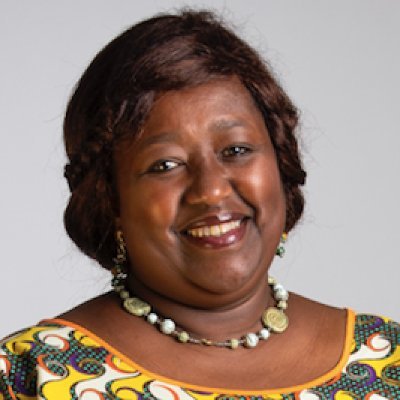Professor Agnes Binagwaho, MD, M(Ped), PHD currently resides in Rwanda having returned to the country in 1996, two years after the 1994 Genocide Against the Tutsi. She is the retired Vice Chancellor and co-founder of the University of Global Health Equity (UGHE) (in 2015), an initiative of Partners In Health based in Rwanda which focuses on changing how health care is delivered around the world by training global health professionals who strive to deliver more equitable, quality health services for all.
Previously, she has provided clinical care in the public sector and has served the Rwandan health sector (1996-2016) in high-level government positions, first as the Executive Secretary of Rwanda’s National AIDS Control Commission, then as Permanent Secretary of the Ministry of Health, and lastly as Minister of Health for five years. She is a Professor of Pediatrics at UGHE, a Senior Lecturer in the Department of Global Health and Social Medicine at Harvard Medical School, and an Adjunct Clinical Professor of Pediatrics at Dartmouth’s Geisel School of Medicine.
During her tenure, Dr. Binagwaho led Rwanda’s effort to roll out a national vaccination campaign. Over 90% of girls in school were immunized against human papillomavirus (HPV) as a result, making Rwanda the first African nation to introduce this vaccine.
She is a member of multiple editorial, advisory and directors’ boards, including the Think20 (T20), the Rockefeller Foundation, the African Europe Foundation and the African Union Commission on African COVID-19 Response. Professor Binagwaho is a member of the U.S. National Academy of Medicine and the World Academy of Sciences and a fellow of the African Academy of Sciences. She is an Emerson Elder and has published over 250 peer-reviewed articles and was named among the 100 Most Influential African Women for 2020 and 2021 and received L’Oréal-UNESCO Award for Women in Science in 2022.
Presenting the IGCS Global Humanitarian Award to Dr. Binagwaho recognizes her exceptional dedication to defy stigma, prevent suffering and disease, and improve the lives of women facing gynecologic cancers in some of the most challenging circumstances globally. Her work underscores the belief that quality healthcare is a fundamental human right, and her relentless pursuit of this ideal has had a profound and lasting impact on women’s health and well-being in not only in Rwanda, but far beyond.
